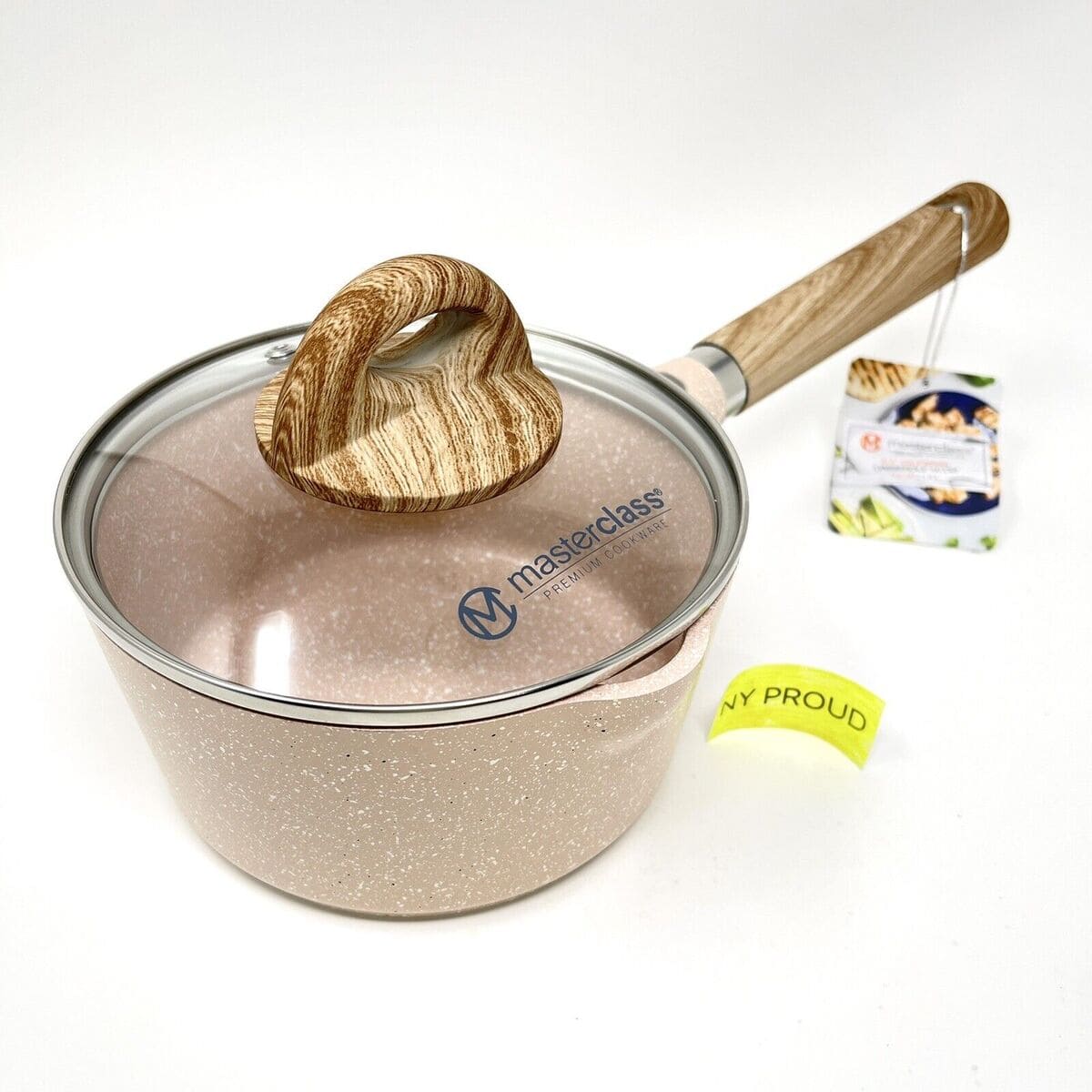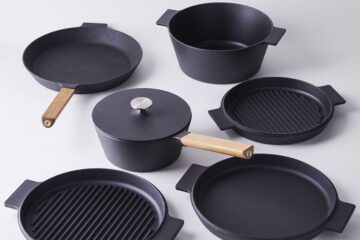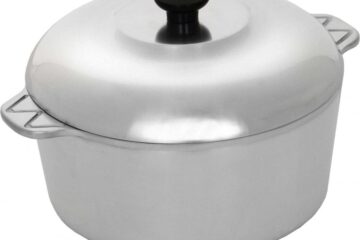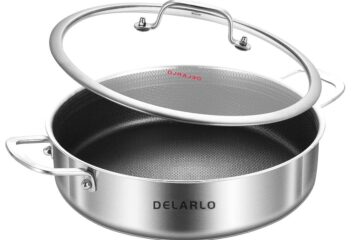Masterclass cookware is a popular choice for many home cooks and professional chefs alike. One common question that arises when using this cookware is whether or not it can go in the oven. The answer is yes, Masterclass cookware can go in the oven.
It is important to note that while Masterclass cookware is oven safe, there are some important factors to consider when using it in the oven. First, always preheat the oven before cooking with any cookware. This will help ensure that food cooks evenly and prevent sticking. Additionally, be sure to check the temperature limitations of your specific Masterclass cookware before using it in the oven.
What is Masterclass Cookware?
Masterclass Cookware is a brand of high-quality cookware that is designed to make cooking easier and more enjoyable. The company offers a wide range of cookware, including pots, pans, baking trays, and more. Masterclass Cookware is made from high-quality materials, such as stainless steel, aluminum, and non-stick coatings, to ensure that it is durable and long-lasting.
One of the key features of Masterclass Cookware is its versatility. The cookware is designed to be used on a variety of cooking surfaces, including gas, electric, and induction cooktops. This makes it a great choice for home cooks who want to be able to use their cookware on different surfaces without having to buy multiple sets.
Another feature of Masterclass Cookware is its ease of use. The cookware is designed to be easy to handle and maneuver, with ergonomic handles and lightweight materials. This makes it easy to cook with, even for beginners.
Can Masterclass Cookware Go in the Oven?
Masterclass cookware is a popular choice for many home cooks due to its durability and versatility. One question that often arises is whether or not Masterclass cookware can go in the oven. In this section, we will explore the answer to this question and provide some useful information about Masterclass cookware.
What Materials are Used in Masterclass Cookware?
Masterclass cookware is made of various materials, including stainless steel, aluminum, and ceramic. These materials are chosen for their durability and ability to conduct heat evenly. The type of material used in your Masterclass cookware will determine its oven-safe temperature.
What is the Maximum Temperature Limit for Masterclass Cookware?
The maximum temperature limit for Masterclass cookware varies depending on the material used. Stainless steel and aluminum cookware can usually withstand temperatures up to 500°F, while ceramic cookware has a lower temperature limit of around 400°F. It is essential to check the manufacturer’s guidelines for the specific temperature limitations of your particular cookware.
Can Masterclass Cookware with Non-Stick Coating be Used in the Oven?
Masterclass cookware with a non-stick coating can be used in the oven, but it is essential to check the manufacturer’s guidelines. Some non-stick coatings are not suitable for high-temperature cooking and can release harmful chemicals when heated to high temperatures. It is crucial to use caution when cooking with non-stick cookware in the oven and to follow the manufacturer’s instructions carefully.
How to Use Masterclass Cookware in the Oven?
When it comes to using Masterclass cookware in the oven, there are a few things to keep in mind to ensure that your food is cooked to perfection. Here are some tips on how to use Masterclass cookware in the oven.
Preheating the Oven
Before placing your Masterclass cookware in the oven, it is important to preheat the oven to the desired temperature. This will ensure that your food is cooked evenly and thoroughly. Follow the recipe instructions for the correct temperature and preheat the oven accordingly.
Placing the Cookware in the Oven
Once the oven is preheated, it is time to place your Masterclass cookware in the oven. Check the manufacturer’s instructions to make sure your particular piece of cookware is oven-safe. Then, place the cookware on the middle rack of the oven to ensure even cooking.
Monitoring the Cooking Process
While your food is cooking in the oven, it is important to monitor the cooking process to ensure that it is cooking properly. Check the food periodically to make sure it is not burning or sticking to the cookware. Use oven mitts or potholders to handle the cookware when checking the food.
Removing the Cookware from the Oven
When your food is finished cooking, it is time to remove the Masterclass cookware from the oven. Use oven mitts or potholders to handle the cookware and place it on a heat-resistant surface. Allow the cookware to cool before cleaning it.
Benefits of Using Masterclass Cookware in the Oven
Masterclass cookware is designed to be versatile and durable, making it an excellent choice for use in the oven. Here are some of the benefits of using Masterclass cookware in the oven:
Even Cooking
Masterclass cookware has a thick base that ensures even heat distribution, which is essential for baking, roasting, and grilling. This feature eliminates hot spots, ensuring that your food cooks evenly and comes out perfectly every time.
Versatility
Masterclass cookware is incredibly versatile, making it perfect for use in the oven. It can withstand high temperatures of up to 260°C, so you can use it for baking, roasting, broiling, and more. This feature makes it an excellent choice for cooking a wide range of dishes, from casseroles to roasted vegetables to baked desserts.
Easy to Clean
Masterclass cookware is dishwasher safe, which makes cleaning up after cooking a breeze. The chemical-free nonstick coatings ensure that food won’t stick to the cookware, making it easy to clean by hand as well.
Durability
Masterclass cookware is made from a durable material that can withstand high temperatures and resist scratches and other damage. The 20-year guarantee on each cookware and 5 years nonstick feature speaks volumes about the durability of the product.
Tips for Caring for Masterclass Cookware Used in the Oven
Masterclass cookware is designed to be used in the oven. Here are some tips for caring for your Masterclass cookware when using it in the oven.
Cleaning the Cookware After Use
After using your Masterclass cookware in the oven, allow it to cool before cleaning it. To clean the cookware, use warm, soapy water and a soft sponge or cloth. Avoid using abrasive cleaners, as they can damage the non-stick coating. Rinse the cookware thoroughly and dry it with a soft cloth or towel.
Avoiding Abrasive Cleaners
When cleaning your Masterclass cookware, avoid using abrasive cleaners or scrubbers. These can scratch the non-stick coating and reduce its effectiveness. Instead, use a soft sponge or cloth and gentle, non-abrasive dish soap.
Storing the Cookware Properly
To ensure that your Masterclass cookware lasts as long as possible, it is important to store it properly. Avoid stacking heavy items on top of the cookware, as this can cause it to become scratched or damaged. Instead, store the cookware in a dry, cool place where it will not be exposed to extreme temperatures or moisture.
Conclusion
In summary, Masterclass cookware is oven safe. Most of their premium cookware products are designed to withstand high temperatures and can be used for baking, roasting, and other cooking methods that require heat. However, it is important to note that not all Masterclass cookware is oven safe, so it is crucial to read the manual and check if your cookware has the safe oven symbol before using it in the oven.
When using Masterclass cookware in the oven, it is recommended to always preheat the oven before cooking with any cookware to ensure that food cooks evenly and prevent sticking. Additionally, it is important to check the specific temperature limits for your individual cookware piece, as some items may have different maximum temperature ratings.
Overall, Masterclass cookware is a reliable and durable choice for those who enjoy cooking and baking. With proper care and use, Masterclass cookware can last for years and provide delicious meals for you and your loved ones.



